The following list of books includes those that were either drawn on in 2019 to support our on-going explorations and programming or were acquired in recognition that they filled a gap and could be useful in the future. There is some overlap with 2018 selections and a few that were acquired to be read in 2020.
I have read many of these books, not all of them, or not all the way through, but I have read enough in each of them [about them in the case of very recent acquisitions] to be convinced of their potential contribution to understanding human venture – counter venture paths of development and decay.
I’ve clustered the books under different headings to make the list easier to navigate, and to highlight something of the range of subjects included in Human Learning Ecology. Most of the clusters are self-explanatory, but three might benefit from a bit of explanation.
One is the cluster that includes Trump. Understandably many thoughtful people are tired of hearing about Trump’s latest free-wheeling assault on truth, reason and civility, but from the perspective of Human Learning Ecology, Trump and those who devotedly follow him, his enablers and the legions of bystanders, constitute a case study of large-scale structural ignorance that has already done a lot of damage, and has the potential for doing much, much more. The forces behind the Trump phenomenon are not unique to the United States, they are active in every society, accelerated by globalization and new forms of media. Turning away only enables these forces. Containing them begins by understanding them. Here’s a very brief sample that focuses on Trump’s world view:
To really understand how Donald Trump sees the world you have to layer multiple lenses on top of each other. Trump believes he alone, often through force of will, can solve certain problems. That’s one lens. Layered on top of that is his belief that all of life is a negotiation, and every negotiation is a zero-sum game. There is no such thing as a “win – win”. Someone will win and someone will lose. Layered on top of that is his belief that personal relationships are paramount, taking precedence in all negotiations, even over mutual interests. And layered on top of that is his belief that creating chaos gives him an advantage, because he’s more comfortable in the mayhem than anyone else.
– Cliff Sims, former special assistant to President Trump. From Trump and His Generals by Peter Bergen
Another cluster that might be helped by a bit of explanation is the one that includes adaptive military leadership. Understandably, war is a subject that many people prefer not to have to think about, or if they do think about it they think only of the waste, suffering and injustice that war inevitably brings with it. It might surprise people to learn that most thoughtful military leaders are very much aware of the waste and suffering associated with their chosen profession, and the actively seek ways to prevent or constrain it. And because war is essentially a high stakes adaptive positioning / learning contest, military history has been one of the important sources of pattern searching in building the meta-framework.
But there is another reason for including this cluster of books. The U.S. military is the only large American institution Trump has not been able to co-opt or corrupt. There are many reasons for this, but it is in large measure a result of the quality of a core of senior military leaders who constituted what the media called “the adults in the room”. There is much to be learned about resisting delusion from these leaders.
Finally, the cluster under “error dynamics” includes a few of the books we are referencing in our online program for Human Venture Associates, but would be of general interest to our Human Venture community.
Cultures of Delusion, Trump & the Thoughtscape Battleground
- “A Warning” by Anonymous, A Senior Trump Official; Hachette Books, 2019
- “American Carnage: On the Front Lines of the Republican Civil War and the Rise of President Trump” by Tim Alberta; Harper Collins, 2019
- “Crime in Progress: Inside the Steele Dossier and the Fusion GPS Investigation of Donald Trump” by Glenn Simpson and Peter Fritsch; Random House, 2019
- “Targeted: The Cambridge Analytica Whistleblower’s Inside story of How Big Data, Trump and Facebook Broke Democracy and How it Can Happen Again” by Brittany Kaiser; Harper Collins, 2019
- “Like War: The Weaponization of Social Media” by P.W. Singer & Emmerson T. Brooking; Houghton Mifflin Harcourt, 2018
- “Commander in Cheat: How Golf Explains Trump” by Rick Reilly; Hachette Books, 2019
- “Could it Happen Here: Canada in the Age of Trump and Brexit” by Michael Adams; Simon and Schuster, 2017
Adaptive Military Leadership, Realism & Delusion Resistance
- “Call Sign Chaos: Learning to Lead” by Jim Mattis and Bing West; Random House, 2019
- “Holding the Line: Inside Trump’s Pentagon with Secretary Mattis” by Guy M. Snodgrass; Sentinel, 2019
- “Sailing True North: Ten Admirals and the Voyage of Character” by Admiral James Stavridis; Penguin, 2019
- “The Leader’s Bookshelf” by Admiral James Stavridis and R. Manning Ancell; Naval Institute Press, 2017
- “Leadership in War: Essential Lessons From Those Who Made History” by Andrew Roberts; Viking, 2019
- “Trump and His Generals: The Cost of Chaos” by Peter Bergen; Penguin, 2019
- “Leaders: Myth and Reality” by General Stanley McChrystal; Penguin 2018
- “Team of Teams: New Rules of Engagement For a Complex World” by General Stanley McChrystal; 2015
Life Learning Paths
- “The Education of An Idealist – A Memoir” by Samantha Power; Dey St. 2019†
- “Range: Why Generalists Triumph in a Specialized World” by David Epstein; Penguin, 2019
- “The Lies that Bind: Rethinking Identity” by Kwame Anthony Appiah; Liveright Publishing, 2018
- “Bush Runner: The Adventures of Pierre-Esprit Radisson” by Mark Bourrie; Biblioasis, 2019
Culture & Adaptive Development
- “The Patterning Instinct: A Cultural History of Humanity’s Search For Meaning” by Jeremy Lent; Prometheus Books, 2017†
- “Upheaval: Turning Points For Nations in Crisis” by Jared Diamond; Little Brown and Company 2019
- “The Culture Question: How to Create a Workplace Where People Like to Work” by Randy Greiser et al.; Achieve Publishing 2019
- “The Culture Code: The Secrets of Highly Successful Groups” by Daniel Coyle; Bantam Books, 2018
- “Blueprint: the Evolutionary Origins of a Good Society” by Nicholas a. Christakakis; Little Brown Spark, 2019
Toxic Culture: Structural Ignorance, Violence, Exploitation – and Resistance
- “The Age of Illusions: How America Squandered Its Cold War Victory” by Andrew Bacevich; Henry Holt and Co. 2020
- “Winners Take All: The Elite Charade of Changing the World” by Anand Giridharadas; Alfred Knopf, 2019
- “Lost Connections: Uncovering the Real Causes of Depression – and the Unexpected Solutions” by Johann Hari; Bloomsbury, 2018
- “Fentanyl Inc.: How Rogue Chemists Are Creating the Deadliest Wave of the Opioid Epidemic” by Ben Westhoff; Scribe, 2019
- “How the Right Lost its Mind” by Charles Sykes” St. Martin’s Press, 2017
- “America, The Farewell Tour” by Chris Hedges; Vintage Canada, 2018
- “Radical Hope: Ethics in the Face of Cultural Devastation” by Johnathan Lear; Harvard University Press, 2006
- “Red Notice: A True Story of High Finance, Murder and One Man’s Fight For Justice” by Bill Browder; Simon and Schuster, 2015
- “The Vory: Russia’s Super Mafia” by Mark Galeotti; Yale University Press, 2018
Truth Decay, Denialism and Adaptive Journalism
- “Breaking News: The Remaking of Journalism and Why it Matters Now” by Alan Rusbridger; Farrar, Straus and Giroux, 2018†
- “Truth in Our Times: Inside the Fight For Press Freedom in the Age of Alternative Facts” by David E. McCraw, Deputy General Counsel of the New York Times; All Point Books, 2019
- “Post-Truth: How Bullshit Conquered the World; by James Ball; Biteback Publishing, 2017
- “Truth Decay: An Initial Exploration of the Diminishing Role of Facts and Analysis in American Public Life” by Jennifer Kavanagh and Michael Rich; Rand Corporation, 2018
- “The Death of Truth: Notes on Falsehood in the Age of Trump” by Michiko Kakutani; Tim Duggan Books; 2018
- “Post Truth: The New War on Truth and How to Fight Back” by Matthew D’Ancona; Ebury Press, 2017
- “The Scientific Attitude: Defending Science from Denial, Fraud, and Pseudoscience” by Lee McIntyre; MIT Press, 2019
Authority & Influence
- “The Lost Art of Scripture: Rescuing the Sacred Texts” by Karen Armstrong; Borzoi, 2019
- “Pre-Suasion: A revolutionary Way to Influence and Persuade” by Robert Cialdini; Simon and Schuster, 2016
- “Influence: Science and Practice” by Robert Cialdini; Pearson, 2019
- “Influence: the Psychology of Persuasion” by Robert Cialdini; Collins Business, 2007
Anthropocene & Climate Change
- “Living in the Anthropocene: Earth in the Age of Humans” edited by W. John Kress and Jeffrey Stine; Smithsonian Books, 2018
- “The Uninhabitable Earth: Life After Warming” by David Wallace-Wells; Tim Duggan Books, 2019
- “The Great Derangement: Climate Change and the Unthinkable” by Amitav Ghosh; University of Chicago Press, 2016
- “Anthropocene: Burtynsky, Baichwal de Pencier; Goose Lane, 2018
- “Learning to Die in the Anthropocene; Reflections on the End of a Civilization” by Roy Scranton; City Lights Publishers; 2015
- “Falter: Has the Human Game Begun to Play Itself Out?” by Bill McKibben; Henry Holt and Co., 2019
- “The Hard Work of Hope: Climate Change in the Age of Trump” by Robert William Sandford and John O’Riordan; RMB, 2017
The Human & Life Stories
- “Growing Pains: The Future of Democracy (and work)” by Gwynne Dyer; Scribe, 2018
- “Lessons for the 21st Century” Yuval Noah Harari; Signal, 2018
- “Sapiens: A Brief History of Humankind” by Yuval Noah Harari; Signal, 2016
- “Behave: The Biology of Humans at our Best and Worst” by Robert Sapolsky; Penguin Press, 2017
- “Genesis: The Deep Origin of Societies” by Edward O. Wilson; Liveright Publishing, 2019
- “Wildhood: The Epic Journey From Adolescence to Adulthood in Humans and Other Animals” by Barbara Natterson-Horowitz and Kathryn Bowers; Scribner, 2019
- “The Goodness Paradox: the Strange Relationship Between Virtue and Violence in Human Evolution” by Richard Wrangham; Pantheon Books, 2019
Transcendent Frame Connections – Caring & Co-Responsibility
- “How to Change Your Mind: What the New Science of Psychedelics Teaches Us About Consciousness, Dying, Addiction, Depression, and Transcendence” by Michael Pollan; Penguin, 2018
- “The New Spirituality: An Introduction to Progressive Belief in the 21stCentury” by Gordon Lynch; I. B. Tauris; 2017
- “Mentors: How to Help and Be Helped” by Russell Brand; Henry Holt and Co., 2019
- “No Turning Back: Life, Loss and Hope in Wartime Syria; by Rania Abouzeid; W. W. Norton, 2018
- “Engineering Systems: Meeting Human Needs in a Complex Technological World” by Olivier L. de Weck, Daniel Roos, and Christopher L. Magee; MIT Press 2011
- “The Songs of Trees: Stories From Nature’s Great Connectors” by David George Haskell; Viking, 2017
- “The Joy of Forest Bathing: Reconnecting With Wild Places & Rejuvenate Your Life” by Melanie Choukas-Bradley; Rock Point Books, 2018
- “A Little Book of Japanese Contentments: Ikigai, Forest Bathing, Abi-Sabi and More” by Erin Nimi Longhurst; Chronicle Books, 2018
- “How to Hygge: The Nordic Secrets to a Happy Life” by Signe Johansen; St. Martin’s Griffin, 2016
Error Dynamics
- “The Human Contribution: Unsafe Acts, Accidents and Heroic Recoveries” by James Reason; Routledge, 2016 [first published 2008]
- “Deep Survival: Who Lives, Who Dies and Why” by Laurence Gonzales; WW Norton; Reprint edition 2017, first published 2004
- “The Logic of Failure: Recognizing and Avoiding Error in Complex Situations” by Dietrich Dorner; Metropolitan Books 1996 [first published in German in 1989]
† Indicates a book, while lengthy, is highly recommended.
